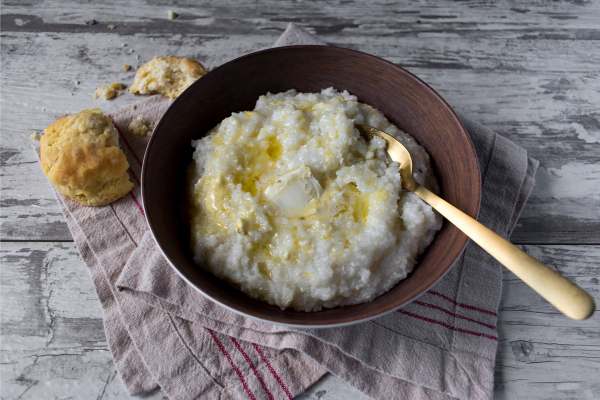Grits, loved for their delightful texture and Southern roots, are a staple in many homes and traditions. But for those managing diabetes, the question arises: Can you enjoy grits without compromising your health? Let’s dive into the world of grits and explore how they fit into a diabetic-friendly diet.
What are Grits?
Grits are a creamy porridge made from ground corn. Whether cooked with water, milk, or broth, they offer a comforting texture akin to baby food or porridge. These humble grains are rich in carbohydrates, with a single cup of cooked grits containing about 24 grams of carbs.
Grits are a versatile dish, often relished as a breakfast favorite or as a complement to savory meals. Their creamy consistency and mild flavor make them an adaptable canvas for various toppings and seasonings, from butter and cheese to shrimp and vegetables.
Glycemic Index and Processing Methods of Grits
Understanding the glycemic index (GI) of grits is crucial for individuals managing diabetes. The GI determines how quickly a food increases blood sugar levels after consumption. In the case of grits, the GI varies significantly depending on the processing methods employed.
Stone-ground grits, cherished for their coarse texture and rich flavor, tend to have a lower GI compared to their more processed counterparts, such as instant or regular grits. This is because stone-ground grits retain a greater amount of fiber and nutrients from the corn kernel, thereby slowing down digestion and aiding in more effective regulation of blood sugar levels.
On the other hand, instant or regular grits undergo extensive processing, resulting in a finer texture and a reduction in fiber content. As a result, these grits typically have a higher GI, meaning they can cause a more rapid elevation in blood sugar levels after consumption.
By opting for stone-ground grits over instant or regular varieties, individuals with diabetes can better manage their blood sugar levels and mitigate the risk of sudden spikes. Additionally, incorporating grits into a meal that includes protein, healthy fats, and non-starchy vegetables can further help stabilize blood glucose levels and enhance overall health.
Benefits of Grits
Even though they’re carb-rich, grits still bring valuable nutrition to your diet when eaten in moderation. Here are some of this food’s advantages you need to consider:
Energy Source: Grits serve as an excellent source of energy due to their carbohydrate content. Carbohydrates are the body’s primary source of fuel, providing the energy necessary for daily activities and bodily functions.
Nutrient Content: Depending on the variety and processing method, grits can provide nutrients such as iron, magnesium, phosphorus, and B vitamins like folate and thiamine.
Fiber: While grits may not be known for their high fiber content, choosing less processed options like stone-ground grits can boost their fiber content. Fiber is important in digestive health, preventing constipation and regulating blood sugar and cholesterol levels. Additionally, it assists in weight management by promoting feelings of fullness and reducing appetite.
Versatility: Grits serve as a versatile culinary ingredient, capable of being prepared and enjoyed in numerous ways. Whether served as a savory breakfast dish topped with eggs and bacon or as a creamy side dish accompanying grilled seafood or vegetables, grits offer endless possibilities for culinary creativity.
A Diabetic-Friendly Diet with Grits
Incorporating grits into a diabetic-friendly diet necessitates thoughtful considerations and strategic choices. Here are some tips to make grits a part of a balanced meal plan for individuals managing diabetes:
Choose Stone-Ground Varieties: Opt for stone-ground grits whenever possible. These varieties retain more fiber and nutrients compared to their more processed counterparts, making them a better choice for stabilizing blood sugar levels.
Cook with Water or Broth: When preparing grits, use water or broth instead of milk to avoid adding unnecessary carbohydrates and calories. While milk may enhance the creaminess of grits, it also contributes additional carbs, which can impact blood sugar levels.
Mind Portion Sizes: While grits can be a part of a balanced diet, consuming large portions can result in an excessive intake of carbohydrates, potentially causing spikes in blood sugar levels. Stick to recommended serving sizes and pair grits with other nutrient-dense foods to create a satisfying and balanced meal.
Balance with Protein, Healthy Fats, and Vegetables: Protein-rich foods like grilled chicken, fish, or tofu can help balance blood glucose levels and promote feelings of fullness. Healthy fats from sources like nuts, avocado, or olive oil can further enhance satiety and provide essential nutrients. Incorporating non-starchy vegetables such as spinach, bell peppers, or broccoli adds fiber, vitamins, and minerals to the meal while also contributing to overall health.
Experiment with Flavorful Additions: Enhance the taste and nutritional value of grits by experimenting with flavorful additions and seasonings. Consider incorporating herbs, spices, and low-sodium condiments to enhance the taste without adding extra carbs or calories.
Can a Diabetic Eat Grits?
The verdict? Yes, individuals with diabetes can enjoy grits in moderation by selecting less processed varieties, controlling portion sizes, and balancing meals with other nutritious foods. Despite their carb content, grits can be part of a delicious and diabetic-friendly diet when consumed mindfully. So go ahead and savor the comforting warmth of a bowl of grits, knowing that you’re making informed choices for your health.


